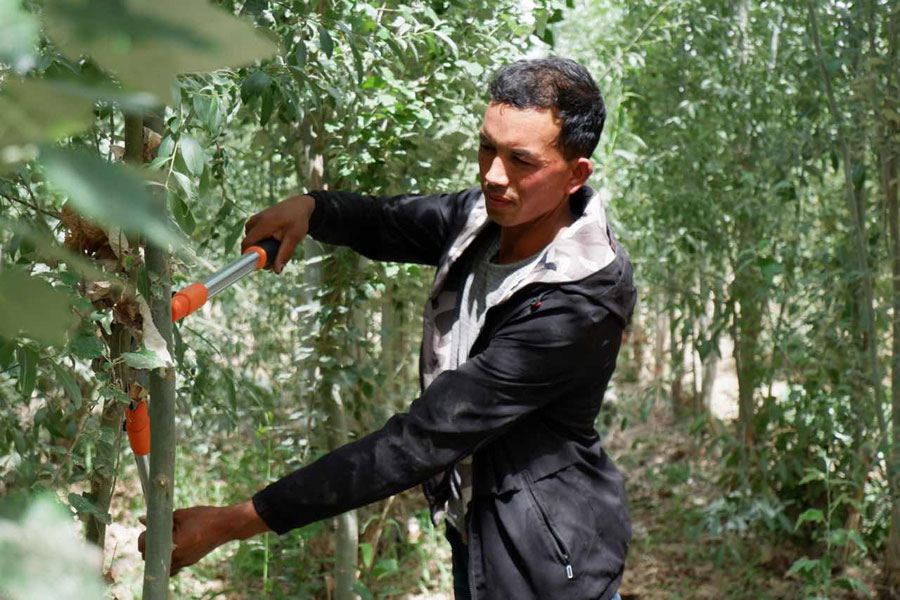Tree-planting reduces sandstorms in Kashgar


Desert conversion projects in southern Xinjiang Uygur autonomous region have worked to contain sandstorms on the outskirts of the Taklamakan Desert over the past few years.
The projects also bolster cash crop farming by offering much-needed farmlands, injecting momentum into sweeping poverty relief efforts in one of China's least developed regions.
The local government of Makit county in Kashgar is charging ahead with a project that aimed at converting about 66,000 hectares of dunes into arable lands by planting drought-resistant plants like saxaul and poplar.
To that end, 50-meter-wide belts of poplar were planted in a bid to reduce wind erosion in the Uyghur-dominated region according to Wang Yufeng, the director of the county's natural resources bureau who oversaw the project over the last seven years.
Meanwhile, many saxaul trees were also planted between the poplar belts to improve the land condition, he said.
"So far we have completed about 22,000 hectares, with more than 190 million trees planted," he said, adding this has already begun to reap ecological benefits.
- Investigation into school uniforms confirms safety of waterproof layer
- Taiwan students join winter sports exchange in Tianjin
- World's largest vertical shaft boring machine deployed for cross-river railway tunnel
- Former chairman of State-owned enterprise sentenced to death with two-year reprieve
- Sichuan's ecological restoration attracts record number of migratory birds
- Two firms fined 23 million yuan for deadly Jiangxi fire





































